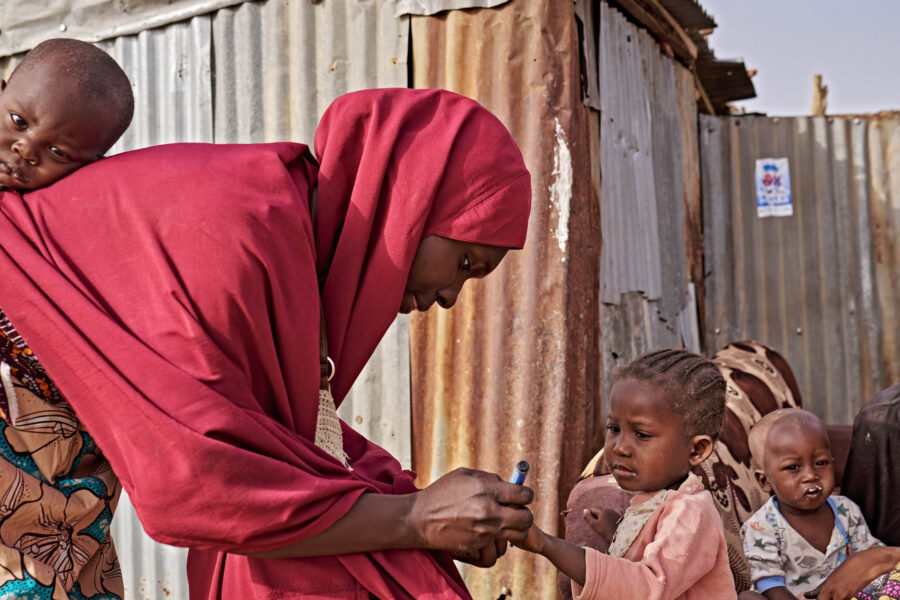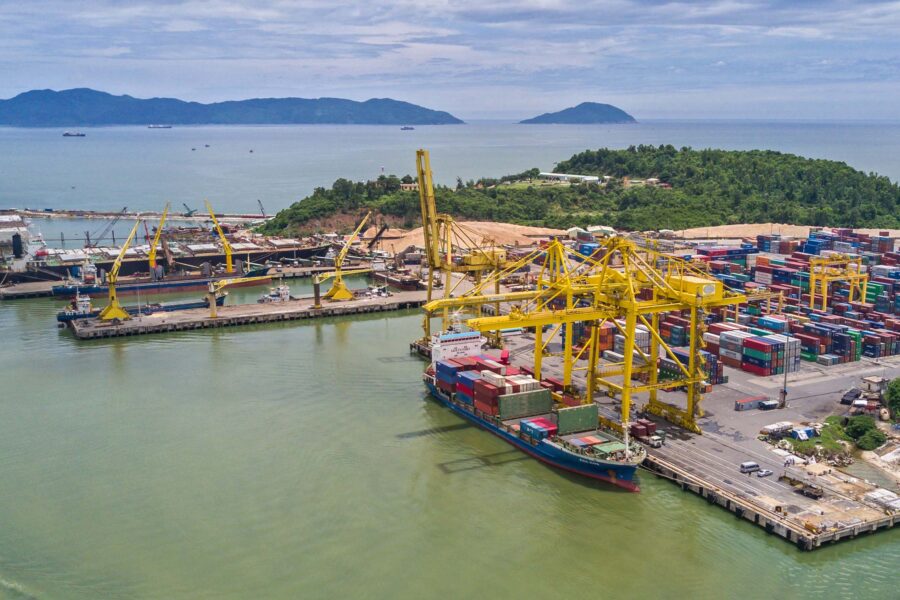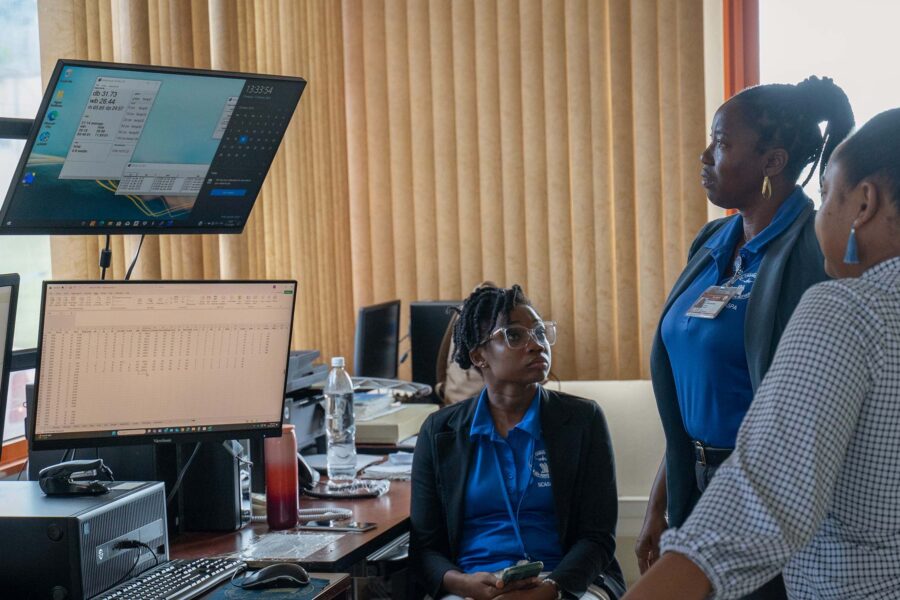An international financial system to empower women
The international financial system faces complex challenges in advancing women’s well-being and opportunities in low-income countries. What is the World Bank doing to help empower women?
Gender — Global

Over a decade ago, the 2012 World Development Report Gender Equality and Development brought women’s empowerment into the spotlight of international development. It solidified gender equality as a core goal for the World Bank Group (WBG) and set the stage for investments that continue to shape our institutional investments in this area.
Data and knowledge for impact
Since then, WBG has invested in generating, distributing, and using data and knowledge to build the evidence base for effective policy design.
One example is the World Bank’s Women, Business and the Law (WBL) database, documenting and tracking laws and regulations that affect women’s economic participation across 190 countries. It’s a key resource for monitoringprogress toward Sustainable Development Goal indicator 5.1.1: “Whether or not legal frameworks are in place to promote, enforce and monitor equality and non-discrimination on the basis of sex.” The database highlights over 2,000 legal reforms implemented across the world since 1970.
The 2024 edition of the WBL report expands this work toward assessing policy instruments supporting implementation of legal reforms and expanding its coverage to review countries’ laws on safeguarding women from violence.
Other efforts such as the Global Findex Database have shone a spotlight on women’s financial inclusion, revealing gender gaps in the access and use of bank accounts. It also illustrates successes – for example, how innovations such as mobile money have empowered sub-Saharan African women.
The Gender Data Portal, housing over a thousand indicators disaggregated by sex, also attests to WBG’s commitment to provide high-quality data as a global public good, readily accessible to policymakers worldwide. Amid the COVID-19 pandemic, the World Bank deployed innovative methodologies such as high-frequency phone surveys to monitor gender-specific impacts in the labor market and childcare.
Partnering to inform action
World Bank partnerships like the multi-donor Umbrella Facility for Gender Equality (UFGE) further underscore our commitment to generating and translating knowledge into action.
Since its inception in 2012, UFGE has been supporting countries to:
- generate, analyze, and use sex-disaggregated data
- learn from rigorous impact evaluations
- test, adapt, and scale successful programs toward gender equality
UFGE has informed the design and implementation of over 300 WBG projects, policy actions in 105 countries, and innovative approaches in more than 80 private sector companies.
The six Regional Gender Innovation Labs, supported by UFGE, further contribute valuable insights into advancing women’s economic opportunities. For example, the labs’ Breaking Barriers report, on how occupational segregation contributes to gender gaps and the policies that work best to address it, has shaped over USD 600 million in development spending across 12 countries.
Actions for gender equality
WBG has delivered tangible actions to empower women and girls in client countries. The share of the World Bank’s operations that include evidence-based interventions to reduce gender gaps has soared from 50% in fiscal year 2017 to 95% in 2023. Notably, projects addressing gender-based violence have increased from 38 in 2012 to 390 in 2022.
In fiscal year 2022 alone, the International Finance Corporation (IFC), a member of WBG focused on the private sector in developing countries, allocated USD 3.8 billion to investments that incorporate a gender lens in developing countries. In 2023, WBG’s Multilateral Investment Guarantee Agency (MIGA) secured over USD 1.2 billion in client lending commitments to women and women-owned businesses.
Simultaneously, the World Bank’s International Development Association (IDA) has taken significant strides in prioritizing gender equality, working with a large network of partners to reach the poorest people. In the first 18 months of the current cycle, IDA has supported over 150 country-led actions in key areas such as expanding girls’ education and women’s access to skills, childcare, and economic opportunities, and fostering economic and digital inclusion. IDA projects also address gender-based violence, and work toward narrowing gender gaps through fiscal policy and budget systems.
For example, with IDA support, Bangladesh has nearly doubled secondary enrolment for girls, and uplifted one million poor women in rural areas through skills development, livelihood support, safe mobility, and agricultural services. Such investments have contributed to an 80% increase in household incomes. They have also helped over 650,000 entrepreneurs gain access to technical and leadership skills, technology, finance, and markets, and have helped develop frameworks to regulate childcare services and maternity leave and invested in safe mobility for women.
The Sahel Women’s Empowerment and Economic Dividend (SWEDD) project series, spanning across the Sahel, is testing, adapting, and scaling innovations with the support of IDA and UFGE. It is addressing the root causes of child marriage, teenage pregnancy, and early school drop-out among adolescent girls, and promoting young women’s economic empowerment. With the involvement of governments, civil society organizations, and international partners such as the United Nations Population Fund, SWEDD mobilizes a wide range of allies, including teachers, religious and community leaders, husbands, and fathers, to facilitate change on the ground. It deploys a comprehensive set of activities, such as ‘safe space’ clubs and reproductive health services for girls, community schools for husbands, and vocational training for women to enter male-dominated jobs.
Leading by example
We are ‘walking the talk’ inside WBG by actively promoting gender equality. Women account for 54% of our workforce and 44% of management. We have made significant, externally recognized strides toward gender equality. In 2022, we earned the Equity, Diversity, and Gender Equality (EDGE) Move certification.
Also in 2022, WBG was recognized as a Platinum Top Global Supplier Diversity and Inclusion (SD&I) Champion by WEConnect International, which recognized our “commitment to global inclusive procurement.” In 2023, WBG exceeded an ambitious target to double its annual corporate procurement from women-owned businesses to 7.4% (from 3.1% in 2018).
Way forward
The path to gender equality is challenging. Obstacles include inadequate services and infrastructure, bias in laws and policies, and entrenched norms and mindsets that influence gender inequality in public and private sector activities as well as personal lives.
Climate change combined with fragility and crises as well as the recent slowdown in economic growth make achieving gender equality more difficult but also more urgent. This is not only because women are disproportionately affected by these adverse developments, but also because women are vital contributors to solving them. There is no way to end poverty on a livable planet without women’s full participation.
We have learned over the past decade that achieving gender equality requires a broad-based concerted effort. Results improve when approaches are comprehensive – for example, complementing reforms and investments with behavioral and norm-changing interventions – and when they are supported by collective action.
In this context, WBG will invest in strengthening global knowledge in newer areas such as social norms and women’s leadership, as well as in expanding technical capacity and partnerships to accelerate gender equality for all. WBG is also working to strengthen accountability for gender equality outcomes in its operations and country engagement.
The proposed WBG Gender Strategy for 2024 to 2030 sets three ambitious goals:
- end gender-based violence and elevate human capital
- expand and enable economic opportunities for women
- engage more women as leaders
We seek to meet these objectives through an ‘all hands on deck’ approach. We will work collectively –across all of WBG, with our partners and all key stakeholders – leveraging knowledge and innovations for action, and mobilizing financing to address both immediate and larger institutional, policy based, and normative barriers to gender equality.





